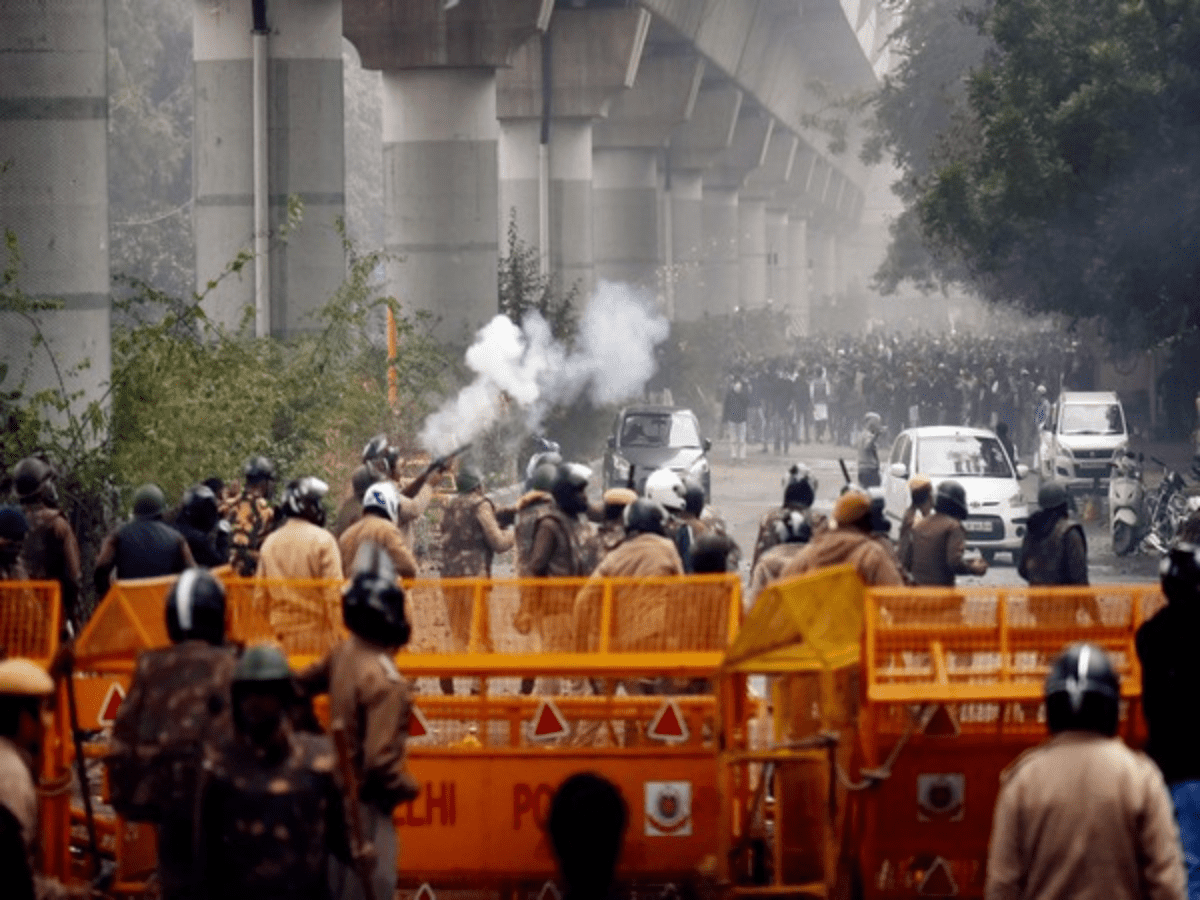
New Delhi: A court here on Friday, while hearing a case related to the 2020 northeast Delhi riots, ordered framing of charges against five accused, saying it has been “prima facie” established that they were part of a riotous mob.
The case is against Arif, Mohd Faisal, Abdul Sattar, Tanveer Ali and Hunain, who are accused of being a part of the mob that set ablaze the Bhajanpura petrol pump, besides assaulting people, pelting stones and committing vandalism and arson on February 24, 2020.
“Thus, the evidence on record does prima facie establish that all the five accused persons herein were members of this mob, which indulged in acts of vandalism, arson, assault to the public persons at Bhajanpura petrol pump as well as on the service road Yamuna Vihar and using force against police officials,” Additional Sessions Judge Pulastya Pramachala said.
The court said the accused persons were liable to be tried under Indian Penal Code (IPC) sections 147 (rioting), 148 (rioting, armed with a deadly weapon), 152 (assaulting or obstructing public servant when suppressing riot) and 186 (obstructing public servant in discharge of public functions).
They will be also tried under sections 149 (every member of unlawful assembly guilty of offence committed in prosecution of common object) and 188 (disobedience to order duly promulgated by public servant) of the IPC.
The court directed that the accused be also put on trial for offences under IPC sections 308 (attempt to commit culpable homicide), 323 (punishment for voluntarily causing hurt), 326 (voluntarily causing grievous hurt by dangerous weapons or means) and 353 (assault or criminal force to deter public servant from discharge of his duty).
They also face trial under sections 427 (punishment for committing mischief and thereby causing loss or damage to the amount of Rs 50 or upwards), 435 (mischief by fire or explosive substance with intent to cause damage to an amount of Rs 100 or upwards) and 436 (mischief by fire or explosive substance with intent to destroy house) of the IPC, it said
The court said according to section 149, because of being a member of the mob and consciously taking part in its activities, every member was responsible for its acts, and that it was not necessary to show overt acts of all the accused persons.
Noting the evidence before it, the court said that an unlawful assembly consisting of the accused and other unidentified persons acted out of a common object to show their criminal force against the government in retaliation to the CAA and the NRC and to commit mischief and other offences.
“This mob indulged into rioting being armed with deadly weapons and in that process, they also pelted stone and obstructed the police officials in the discharge of their duty and in their endeavour to disperse the mob and to suppress the riotous act by using criminal force against the police officials,” it said.
The court also said it was prima facie established that one of the injured had suffered a grievous injury because of a petrol bomb, while another victim suffered a grievous injury on his head and four others suffered simple injuries after being assaulted by the mob.
“The damage caused to Bhajanpura petrol pump was in the nature of damaging and burning the articles and setting this petrol pump on fire,” the court said, adding that there were also allegations that “the mob had indulged into scuffling with police and obstructed them in the discharge of their duties and in the course of the same they also pelted stones on the police team.”
The court rejected various grounds of discharge sought by the accused, including the absence of test identification parade (TIP) proceedings and the credibility of some witnesses.
It also said, “The rule of prudence can be applied only after trial, at the time of assessment of the evidence on the parameters of credibility.”
The court, however, discharged them of the offences under sections 120 B (criminal conspiracy), 201 (causing disappearance of evidence of offence) and under the provisions of the Prevention of Damage to Public Property Act.
The Bhajanpura police station had registered an FIR against the accused.
(Except for the headline, the story has not been edited by Siasat staff and is published from a syndicated feed.)

